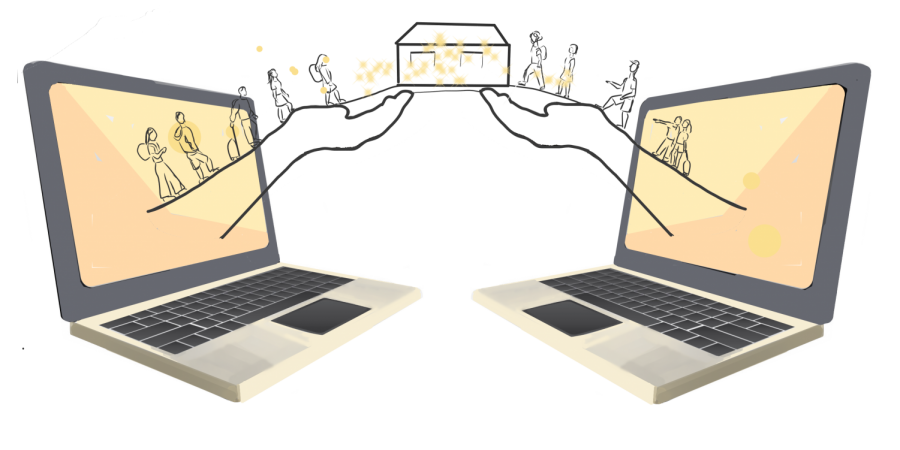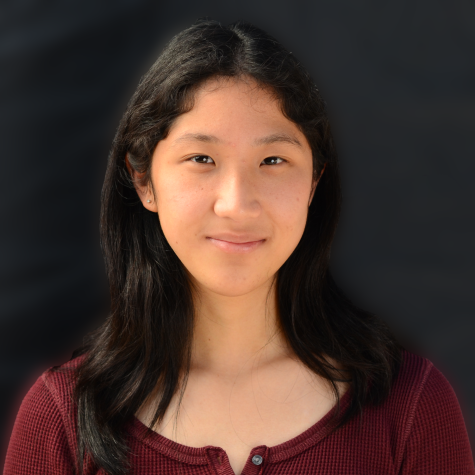Editorial: Gen Z defines itself through adversity
What do we look like through our own eyes? We have been endlessly defined by a time range, compared with analyses of older generations and their defining moments: wars, disasters, crises. But what about by ourselves?
September 29, 2020
Completely reliant on technology. The “snowflake” generation. A lack of focus. A short attention span. Such common stereotypes may pervade characterizations of Generation Z, but the reality extends beyond scrolling through hours of social media or following frivolous trends.
What do we look like through our own eyes? We have been endlessly defined by a time range, compared with analyses of older generations and their defining moments: wars, disasters, crises. But what about by ourselves?
Our seniors were just entering their second semester of high school when a gunman opened fire at Marjory Stoneman Douglas High School abruptly and undeniably altering national discourse surrounding school safety. Every student has experienced the endless turmoil surrounding the deadly and destructive California fires each year. Even our freshmen have navigated the first few weeks of high school seeing their class only through pages of videos on Zoom and not even stepping foot on the upper school campus.
Our regularly planned train of events has been completely derailed, and we are still waiting for the assurance of a normal schedule. The COVID-19 pandemic is the latest adversity our generation has encountered, and we have been isolated in our homes without a hug from friends or family for the past six months.
However, these challenges have not pinned us down. Instead, they have become integral opportunities for Gen Z’s creation and manifestation of our own self-definition. We are a generation more committed to effecting civic change than any generation before us. Again and again, we have collectively turned difficulty into paths for the future not just out of want. Youth organizers brought student protests to the streets, leading national and international movements regarding gun restrictions and climate change awareness. Student journalists are at the forefront of reporting on COVID-19 at their institutions. All of us, just by social distancing and doing our part, have changed, transformed.
These obstacles — the pandemic, the politics, the pressure — have not weakened us. Rather, they have transformed us and helped us define ourselves.


















![“[Building nerf blasters] became this outlet of creativity for me that hasn't been matched by anything else. The process [of] making a build complete to your desire is such a painstakingly difficult process, but I've had to learn from [the skills needed from] soldering to proper painting. There's so many different options for everything, if you think about it, it exists. The best part is [that] if it doesn't exist, you can build it yourself," Ishaan Parate said.](https://harkeraquila.com/wp-content/uploads/2022/08/DSC_8149-900x604.jpg)




![“When I came into high school, I was ready to be a follower. But DECA was a game changer for me. It helped me overcome my fear of public speaking, and it's played such a major role in who I've become today. To be able to successfully lead a chapter of 150 students, an officer team and be one of the upperclassmen I once really admired is something I'm [really] proud of,” Anvitha Tummala ('21) said.](https://harkeraquila.com/wp-content/uploads/2021/07/Screen-Shot-2021-07-25-at-9.50.05-AM-900x594.png)







![“I think getting up in the morning and having a sense of purpose [is exciting]. I think without a certain amount of drive, life is kind of obsolete and mundane, and I think having that every single day is what makes each day unique and kind of makes life exciting,” Neymika Jain (12) said.](https://harkeraquila.com/wp-content/uploads/2017/06/Screen-Shot-2017-06-03-at-4.54.16-PM.png)








![“My slogan is ‘slow feet, don’t eat, and I’m hungry.’ You need to run fast to get where you are–you aren't going to get those championships if you aren't fast,” Angel Cervantes (12) said. “I want to do well in school on my tests and in track and win championships for my team. I live by that, [and] I can do that anywhere: in the classroom or on the field.”](https://harkeraquila.com/wp-content/uploads/2018/06/DSC5146-900x601.jpg)
![“[Volleyball has] taught me how to fall correctly, and another thing it taught is that you don’t have to be the best at something to be good at it. If you just hit the ball in a smart way, then it still scores points and you’re good at it. You could be a background player and still make a much bigger impact on the team than you would think,” Anya Gert (’20) said.](https://harkeraquila.com/wp-content/uploads/2020/06/AnnaGert_JinTuan_HoHPhotoEdited-600x900.jpeg)

![“I'm not nearly there yet, but [my confidence has] definitely been getting better since I was pretty shy and timid coming into Harker my freshman year. I know that there's a lot of people that are really confident in what they do, and I really admire them. Everyone's so driven and that has really pushed me to kind of try to find my own place in high school and be more confident,” Alyssa Huang (’20) said.](https://harkeraquila.com/wp-content/uploads/2020/06/AlyssaHuang_EmilyChen_HoHPhoto-900x749.jpeg)







